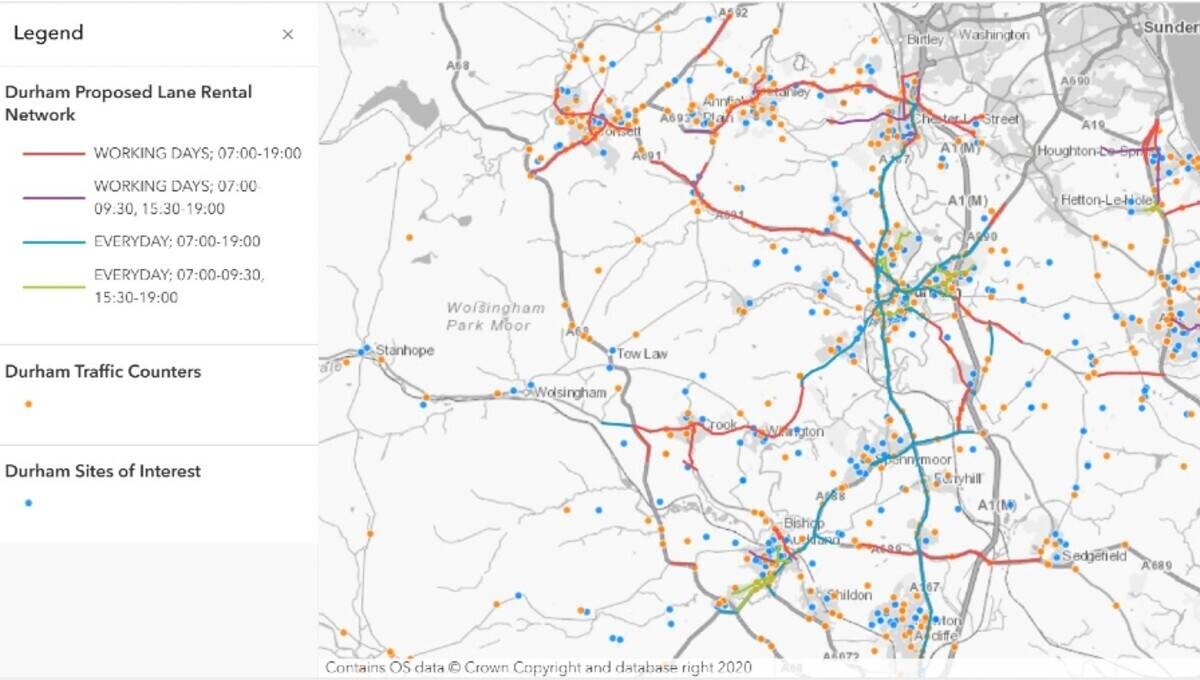Enhancing the integrity and quality of electoral registers is an important step toward assisting effective use of the register and detecting certain types of electoral fraud. The NLPG is a local government project managed by the Improvement and Development Agency (IDeA) and its private sector technology partner, Intelligent Addressing.
The Ministry of Justice (MOJ) recently issued the directive that all electoral registers have to comply with new data standards by 1st of December 2009. The directive sets standards for the formatting of electors' names, dates of birth and addresses in electoral registers which is based on the UK Address Standard, BS7666, and must include a Unique Property Reference Number (UPRN). In the majority of registers the UPRN will be verified as part of the address validation process using the National Land and Property Gazetteer. The directive follows a recommendation by the Electoral Commission following lengthy consultation with the Ministry of Justice, Political Parties, Electoral Register Officers and software suppliers.
Implementation of the standards is the responsibility of the Electoral Registration Officers in each Local Authority and the MoJ has issued guidance on the process of bringing data up to the required standard. This involves the initiation of a process to convert every electoral register to BS 7666 format and then to match the registers to the NLPG. Any anomalies will be resolved between the Electoral Registration Officers (EROs) and the Local Authority Local Land and Property Gazetteer (LLPG) Custodians in order that the 2009 deadline can be met. Software suppliers will also be involved to ensure their systems can fully support the new standards. Once in place the electoral register data will need to be maintained to the standard, and this is where establishing links with the Local Authority's LLPG, with access to the NLPG for out of area addresses, will be important.
The data standardisation activity lays the groundwork for the future implementation of the Co-ordinated Online Record of Electors (CORE). The key objectives of CORE is to facilitate effective checking of political party donations and to assist in the detection of certain types of electoral fraud..
"Whilst some authorities already match their Electoral Registers with their LLPGs and hence the NLPG, there are many that do not and we are delighted to be assisting in this process," said Michael Nicholson, Managing Director of Intelligent Addressing. "CORE will facilitate more efficient and effective access by authorised users to data which they currently gather on a local basis. This is a process that we as custodians of the NLPG understand only too well," continued Nicholson.
25th June 2008
Notes to Editors:
The NLPG was initiated in 1999 to become the master address dataset for England and Wales and the central hub for the 376 address creating Local Authorities and their Local Land and Property Gazetteers (LLPGs). Based on unique property reference numbers (UPRNs) the underlying principle of these gazetteers is to provide a single definitive ad dress database for all departments and systems across a local authority in order to cut costs, improve efficiency and service delivery.
The benefits also go beyond service delivery. Fraud prevention, tax collection and disaster planning all benefit from the fact that each property is given a âUnique Property Reference Number' which transcends (property) numbers, names, descriptions (such as âThe Nursing Home') and the Postcode. UPRNs are assigned for the full life of the plot and/or building from planning approval to demolition.
Intelligent Addressing is a specialist private sector consultancy (an SME) employing recognised experts in addressing. It was originally set up to help develop the National Land and Property Gazetteer (NLPG) on behalf of local government and now manages the NLPG and NSG central data hubs under the terms of the Mapping Services Agreement (MSA) with local government.
Intelligent Addressing contact:
Gayle Gander, Head of Marketing | 0207 747 3500 | E-mail: [email protected] | www.intelligent-addressing.co.uk, www.thensg.org.uk, www.nlpg.org.uk
Editorial enquiries and colour separation requests:
William Allbrook | T: 01666 826641 | F: 01666 824668
The Improvement and Development Agency (IDeA) The IDeA works in partnership with all councils, to enhance the performance of the best, accelerate the speed of improvement of the rest, and develop the sector as a whole. IDeA has brokered the Mapping Services Agreement (MSA) with Intelligent Addressing to develop the NLPG and NSG, through the Local Government Information House (LGIH), a wholly owned subsidiary of the Agency.
Working in partnership with the local government community developing national infrastructure projects that enable councils to deliver local services more effectively, LGIH acts as an intermediary between the public and the private sector enabling it to negotiate with private companies on behalf of local authorities in order to provide key parts of a technical infrastructure for improved service delivery.
The NLPG is a joint venture between the Information House and Intelligent Addressing Limited.
IDeA contacts:
Paul Bailey | 020 7296 6600 | Email: [email protected] | www.idea.gov.uk



